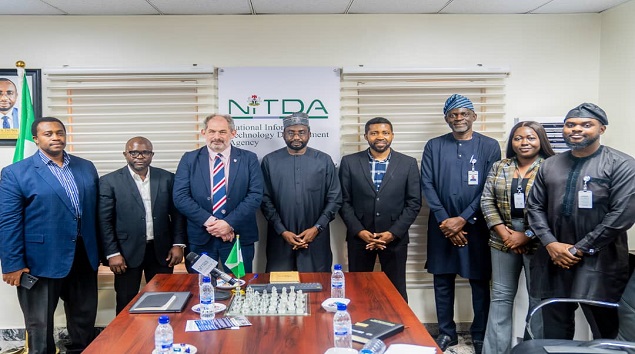General News
UPS Enhances Cryogenic Logistics with MI&F Risk Mitigation Solutions

UPS® has announced the launch of UPS Temperature True Cryo, which further broadens the scope of UPS temperature-sensitive shipping offerings to include cryogenic solutions for UPS healthcare customers.
The service includes real-time tracking and intervention services, which, when combined with UPS’s proactive monitoring, risk mitigation solutions and global network of control towers, will provide complete visibility for cryogenic shipments at every stage of the supply chain journey.
The expansion is the latest addition to the UPS Temperature True suite of solutions.
The innovative solution uses Cryoport’s leading-edge cryogenic and related technologies, which allow UPS customers to use liquid nitrogen stored in dry vapor form to keep products frozen at -150 degrees C for 10 days while in transit or storage, providing a reliable, safe container for cryopreservation of products.
It can also be paired with the industry first risk management, intervention and insurance solution, UPS Proactive Response Secure, to provide unprecedented coverage for time- and temperature-sensitive shipments.
“There is a growing spectrum of demand across tissue engineering, regenerative medicine, gene therapy, biopharmaceutical research and reproductive health, and we are excited to add UPS Temperature True Cryo to meet our clients’ needs,” said John Menna, UPS’s vice president of global strategy for healthcare logistics. “The value and irreplaceable nature of products requiring cryopreservation highlight the need for a combination of cryogenic capability and financial risk mitigation – Temperature True Cryo and UPS Proactive Response Secure are a great pairing.”
Product security, damage and spoilage are leading industry supply chain concerns as reported in the most recent UPS Pain in the (Supply) Chain Survey, a global study that measures healthcare logistics decision-makers’ pain points. “We are committed to and will continue to diversify our portfolio to meet industry demands and offer our customers peace of mind by implementing the UPS quality standard they rely on as we integrate this solution into our portfolio,” said Menna.
The UPS Temperature True portfolio offers temperature-sensitive storage and transportation solutions and services for products ranging from cryogenic to ambient, specifically tailored for companies in the pharmaceutical, biotech and medical device industries.
UPS Temperature True Cryo follows the recent launch of three new Temperature True freight service levels that allow for different time-in-transit and control options for bulk temperature-sensitive shipments.
These services are complemented by proactive monitoring and intervention technologies, extensive regulatory expertise and a global network of 46 UPS healthcare-dedicated facilities.
UPS is a global leader in logistics, offering a broad range of solutions including transporting packages and freight; facilitating international trade, and deploying advanced technology to more efficiently manage the world of business.
General News
NFIU Warns Against Use of BNBEX over False Claims

Nigerian Financial Intelligence Unit (NFIU) has dissociated itself from BNBEX’s activities and warned Nigerians against using the online trading platform.

BNBEX, a global cryptocurrency trading, with headquarters in Miami, Florida, USA, had claimed that the NFIU is conducting a compliance review of all transactions related to Nigerian users on her platform pursuant to Nigerian Financial Surveillance Regulation.
However, in a swift reaction, Sani Tukur, head, strategic communications department, the Nigerian Financial Intelligence Unit, said such circular was not issued by the NFIU and bears no connection whatsoever to any of the unit’s current regulatory or compliance initiatives.
According to him, ” the NFIU wishes to inform all financial system stakeholders and the general public that it did not authorise nor author the document recently posted by BNBEX on its website, which falsely claims that the NFIU is conducting a compliance review of all transactions related to Nigerian users on her platform pursuant to Nigerian Financial Surveillance Regulation.
“The NFIU categorically states the circular was not issued by the NFIU and bears no connection whatsoever to any of the Unit’s current regulatory or compliance initiatives.
“Secondly, the Unit wishes to state that ‘Nigerian Financial Surveillance Regulation’ referenced in the circular is non-existent and has no basis in Nigerian law or regulatory frameworks.
“It further states that the logo and insignia used in the circular does not belong to NFIU and is fake. Additionally, the Unit presently has no office situated at Central Business District, Abuja or any other location outside it’s head office at No. 1 Monrovia Street, Wuse II, Abuja.
“NFIU therefore, strongly dissociates itself from the claims made in the circular and urges members of the public to rely only on official NFIU channels for accurate and legitimate information. Finally, the Unit has no affiliation to the entity known as BNBEX nor validated any of its operations.
“For purposes of clarification or to report suspicious information purporting to be from the NFIU, please contact the Strategic Communications Department at info@nfiu.gov.ng.”
General News
NITDA Advocates Strategic Partnership in Research to Unlock Nigeria’s Digital Potential

Kashifu Inuwa, CCIE, the Director General of the National Information Technology Development Agency (NITDA), has emphasized the critical need for robust collaboration among academia, industry, and government.

This call was made during a working visit by a delegation from Lancaster University, United Kingdom, led by Professor Kirk Semple, Director of International Research, to NITDA’s corporate headquarters in Abuja.
The visit centred on exploring avenues for strategic collaboration under the Research and Innovation Partnership for Entrepreneurship (RIPE) programme, an initiative aimed at leveraging academic research and innovation to spur entrepreneurial development and economic transformation.
Addressing the delegation, Inuwa noted that Nigeria and Africa broadly face a significant research investment gap that continues to hinder the continent’s progress toward building knowledge-based economies. “For us to build a robust and sustainable economy, we need to invest in research. That is where we have a huge gap in Nigeria and Africa at large, we don’t invest in research,” he said.
Using agriculture as a case in point, Inuwa observed that many Nigerian farmers lack access to critical data and digital tools that could revolutionise productivity and resource efficiency. He stressed that research and development (R&D) are foundational to solving such sector-specific challenges and to informing policies and regulations that can accelerate digital transformation.
Inuwa further outlined NITDA’s focus on emerging technologies such as Artificial Intelligence (AI), Internet of Things (IoT), unmanned aerial vehicles (UAVs), blockchain, robotics, and additive manufacturing, noting that these technologies hold vast potential for solving local problems and creating new economic opportunities.
“The goal is to create a vibrant technology-research ecosystem that unites academia, industry, government, entrepreneurs, and risk capital,” he stated.
He further emphasised the need to align university curricula with real world industry demands, encouraging institutions to develop talent capable of addressing practical challenges through innovation. Inuwa also called for better coordination among stakeholders, warning against the inefficiencies of duplicative efforts.
Inuwa also referenced the eight strategic pillars identified by the Federal Government as drivers of national development. These include Reforming the economy for inclusive and sustainable growth, strengthening national security for peace and prosperity, boosting agriculture to achieve food security, unlocking energy and natural resources, enhancing infrastructure and transportation, focusing on education, health, and social investment, accelerating diversification through industrialisation and innovation, Improving governance and service delivery.
To support these priorities, Inuwa further highlighted NITDA’s Strategic Roadmap and Action Plan 2.0 (SRAP 2024–2027), which is structured around eight complementary pillars. These include Foster Digital Literacy and Cultivate Talents, build a Robust Technology Research Ecosystem, Strengthen Policy Implementation and Legal Framework, Promote Inclusive Access to Digital Infrastructure and Services, Strengthen Cybersecurity and Enhance Digital Trust, Nurture an Innovative and Entrepreneurial Ecosystem, Forge Strategic Partnerships and Collaboration, and Cultivate a Vibrant Organisational Culture and an Agile Workforce in NITDA.
“We place a strong emphasis on research because without it, you can not develop effective policies or regulations that drive real change in the ecosystem,” Inuwa added.
The meeting marked a significant step forward in NITDA’s commitment to international collaboration, aligning with the broader objectives of President Tinubu’s Renewed Hope Agenda, and positioning Nigeria to take a leadership role in the global digital economy through research-led innovation, DG stated.
In his earlier remarks, Professor Kirk Semple highlighted Lancaster University’s global research reputation and its commitment to strategic collaborations that deliver societal value. He described the (RIPE) programme as a vehicle for knowledge mobilisation moving beyond academic theory to practical application.
“Universities today are under pressure to demonstrate value beyond knowledge creation. Strategic partnerships like this with NITDA helps ensure research informed policy, supports innovation, and drives meaningful change in communities,” Semple said.
He also underscored the role of innovation in bridging the gap between academia and society, noting that universities serve as critical hubs for organisations especially those lacking R&D capabilities to access expertise and resources necessary for solving global issues like climate change, public health, and technological inequality.
Professor Semple concluded by affirming the importance of creating diverse, long-term networks that foster cooperation across sectors, emphasizing that the true measure of success lies in sustained impact rather than accolades.
General News
Lagos Slush’D 2025 To Promote Creativity among Start-ups

The median edition of Lagos Slush’D 2025, an innovation-driven, founder-focused startup conference begins today. The two-day event holding at The Podium, Lekki, Lagos, is part of the global Slush’D movement under the world-renowned Slush Helsinki brand.

Lagos Slush’D 2025 will showcase Nigeria’s fast-growing start-up ecosystem and spotlight the creativity, resilience, and ambition of Nigerian founders.
Mr. Kolawole Okuboyejo, Director, Lagos Slush’D, said the event will also connect local startups with global innovation networks, particularly the Nordics (Finland, Denmark, Sweden, Norway, and Iceland), known for world-leading innovation, sustainability, and impact entrepreneurship.
“It will facilitate meaningful partnerships between start-ups, investors, corporates, accelerators, and policymakers to drive funding, market access, and knowledge exchange.
“Promote inclusive and scalable innovation that tackles Africa’s biggest challenges — from food security and digital inclusion to climate adaptation and affordable healthcare. Strengthen the Nigeria-Nordics connection, building long-term bridges between ecosystems that believe in entrepreneurship as a driver of societal and economic progress.
“Lagos Slush’D is where ambition meets opportunity — a space for start-ups to pitch bold ideas, meet future partners, and accelerate their journey from local to global impact,” he said.
He noted that Lagos Slush’D place a special emphasis on the Nigeria-Nordics connection, drawing from the Nordics’ strengths in clean technologies, impact investing, sustainability, and start-up innovation, while tapping into Nigeria’s fast-growing, opportunity-rich market.
“Nigeria boasts a young, tech-savvy, urban population, a growing middle class, and rapidly expanding mobile and internet connectivity — all fueling digital innovation.
“Nigeria is home to Africa’s largest economy and most vibrant start-up scene. Over 600 active tech hubs across Africa. African start-ups raised over $5 billion in funding in 2023, with projections for a fivefold increase by 2030.
Africa’s combined GDP is projected to reach $3.2 trillion by 2030. The African Continental Free Trade Area (AfCFTA) will become the world’s largest free trade zone, unlocking massive cross-border opportunities.

 Broadcasting3 days ago
Broadcasting3 days ago5 Things You Absolutely Need to Know About BBNaija Season 10

 Telecom3 days ago
Telecom3 days agoNigerians May Pay More for Calls, Data as Senate Okays 5 Percent Excise Duty

 E-Financial3 days ago
E-Financial3 days agoW’Bank Says Cash Transfer Missed Millions of Needy Nigerians

 E-Business3 days ago
E-Business3 days agoNCC to Checkmate $3Bn Digital Piracy Market

 E-Business3 days ago
E-Business3 days agoNIMC Launches NINAuth Digital Identity Verification App for Govt Services

 General News3 days ago
General News3 days agoEFCC Tells Nigerians to Shun Ponzi Schemes Like CBEX, Others

 Telecom3 days ago
Telecom3 days agoMastercard Report Reveals Top Travel Trends Shaping Africa in 2025

 E-Financial3 days ago
E-Financial3 days agoCBN, NIBSS Unveil BVN Platform for Diaspora Nigerians


























